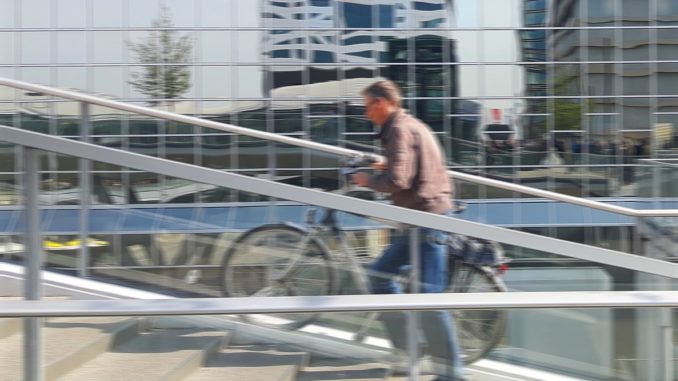
Blog by Nico van Paridon for the Cycling Community.
Nico van Paridon is a practitioner. He works for the Amsterdam Regional Public Transport Authority and sheds his light on a difference in tax regimes for bicycles in the Low Countries (with a short trip to Germany). Hopefully his blog inspires fiscal scientists.
Bicycle manufacturer Stroomer sells 4 times more bicycles in Flanders than in the Netherlands. Hey, how is that possible? The Dutch are the cycling country of the world, aren’t they? True, but not in all respects. The crux lies in the way in which their southern neighbours promote cycling fiscally. Holland can really learn something from that. Are you reading along? The last two paragraphs may give you new insights.
Commuting by bicycle
As an employee in the Netherlands, you have to make a choice about your commuting by bicycle. It is either the private bicycle, or a bicycle from the company. If you opt for your private bike, a fee of 21 cents per kilometre is possible tax-free. If you choose a company bicycle, for example because you want to purchase an electric bicycle, more rules apply. For example, you lose the right to a travel allowance if you cycle. After all, you have already benefited from a company bicycle. You can combine your company bike with other modalities. So if it rains you can go to the office by car for 21 cents per km. It is even better if you choose public transport. That is also reimbursed. An addition applies to the company’s bicycle. You can also use the bike privately and on weekends. The tax authorities qualify that part as “wages in kind”. For this you have to add 7% of the purchase value to your income. The system in Belgium not only stimulates the purchase of a bicycle but also the use. With a company bicycle, you can also claim your travel allowance. It’s both, and. They do the same in Germany. This means that if you cycle to work a lot, you will receive more travel allowance at some point than you pay tax for the addition. You will then earn net. Sticking a kind of old Dutch seals, but on the bike. If this encourages bicycle use, it’s exactly what we want; people who move, emit almost no nitrogen and CO2 and, above all, do not cause traffic jams.
Possession ánd use
The Belgian regulation is therefore aimed at possession ánd use, whereas the Dutch regulation only promotes possession. Is such an arrangement new to us? Nope. Double advantage comes in all kinds of forms. For example, if you buy an electric car privately in the Netherlands, you will receive a subsidy of € 3,000, and you will retain your right to tax-free travel costs and you will not be bothered by an addition. Three times word value. Let’s give a push to making the Dutch mobility more sustainable and follow the Belgian and German example!
